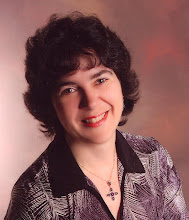The Lesson of the Groundhog

"The seven years of plenty that prevailed in the land of Egypt came to an end; and the seven years of famine began to come, just as Joseph had said. There was famine in every country, but throught the land of Egypt there was bread." Genesis 41:53-54
It's Groundhog Day or, as I like to call it, The Feast of St. Chuck. As many of you know, I'm a fan of all creatures but have a special place in my heart for the lowly woodchuck. You can read about my most famous defense of them here.
More generally and more seriously, I have always believed that God's first revelation came in the created order and that everything in Creation has something to teach us. Which begs the question...what does God hope we learn from the groundhog?
The life of a groundhog is relatively straight forward: Eat all you can, get as fat as you can, sleep for several months together, wake up, predict the weather, repeat. There are times when that seems like an ideal life! But the gluttony of the groundhog that gets so many of you gardeners upset is not like the gluttony of people. There is a purpose for getting so fat. The groundhog hibernates for the winter. If a groundhog does not get fat enough, there is no spring awakening.
During hibernation, a groundhog's body temperature drops to 37 degrees F (3 degrees C) and its heartbeat drops from 80 beats per minute to 4-5. As it sleeps from roughly October - March, there is no nighttime raiding of the fridge. The groundhog lives off the fat accumulated in the Spring, Summer, and Fall, often even after waking back up, since the ground is often still snowy in March, with little to eat even then.
In short, the groundhog knows to store up during the times of plenty for the lean times ahead. It knows that some winters are longer than others and prepares for the worst, while popping back up in March, hoping for the best.
It was that wisdom that allowed the Hebrew patriarch, Joseph, to move from being a prisoner in Pharaoh's dungeon to being second in command in all of Egypt. Pharaoh had a dream and Joseph, while still in prison, gave the correct interpretation: The land would have seven years of plenty and during those seven years, Pharaoh should store up all the extra grain because seven years of famine was coming on its heels. Pharaoh did just that and when the hard times came, Egypt was the only place with food. The descendants of Abraham, Isaac, and Jacob had to leave the land of Canaan and go to Egypt in order to survive.
It struck me how similar the plenty/lean cycle was to our current situation and how dissimilar was our preparation. When times were good, we did not look ahead and store up for the lean years. We were gluttons, yes, but for gluttony's sake--consuming anything and everything, whether we truly needed it or not. We neglected to remember God's lesson in creation that winter follows the harvest. While the groundhog dug his burrow deeper and prepared for hard times, we lived as if the abundance of summer would last forever. And it didn't.
The groundhog teaches us that hard times are a part of life. Some may be harder than others, but we can survive them if we remember that they will come and prepare. God sent that message through Joseph to Pharoah, allowing Egypt to prosper even in a time of famine. God sends that message to all of us who see a groundhog. Maybe we should put down our guns and traps and listen.
Labels: Anne Robertson, economy, Groundhog Day, groundhogs, hard times, Massachusetts Bible Society, woodchucks

